In the valley of Kayersberg, in the heart of the Ballons de Vosges Nature Park, there is a remarkable cooperation among hoteliers that stands for broadening horizons. The concept of Horizons d’Alsace sounds like it was created during the pandemic to cater to people’s rekindled desire to hike and be close to nature. But Horizons d’Alscace has been around for more than 30 years. Nine hotels with a combined 220 rooms, 400 restaurant seats and over 100 hiking routes are the bare numbers behind a very charming idea.
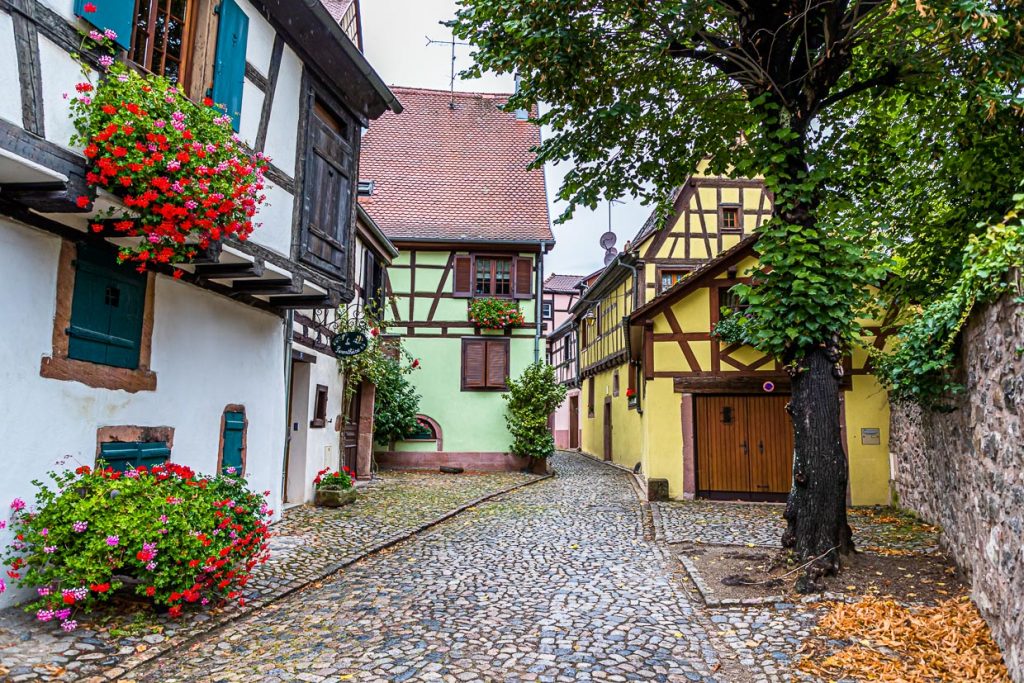
Walking from one hotel to another
At the first hotel of the Horinzons d’Alsace cooperation, guests are provided with maps and planning details. The hotel from which one sets out in the morning takes the guests’ luggage to the next stop, and the last hotel on the hiking route in turn takes the guests to their car or to the next train station. It is an arrangement among colleagues, who could also see themselves as competitors, because the hotels are not far from each other. But the offer of hiking without luggage attracts many guests from abroad. Hiking in the Vosges is popular with Scandinavians, French and guests from the U.S. and Canada, who are particularly attracted by the fully preserved medieval flair, Christiane Keller, who runs Hotel Les Remparts in Kaysersberg, tells us.
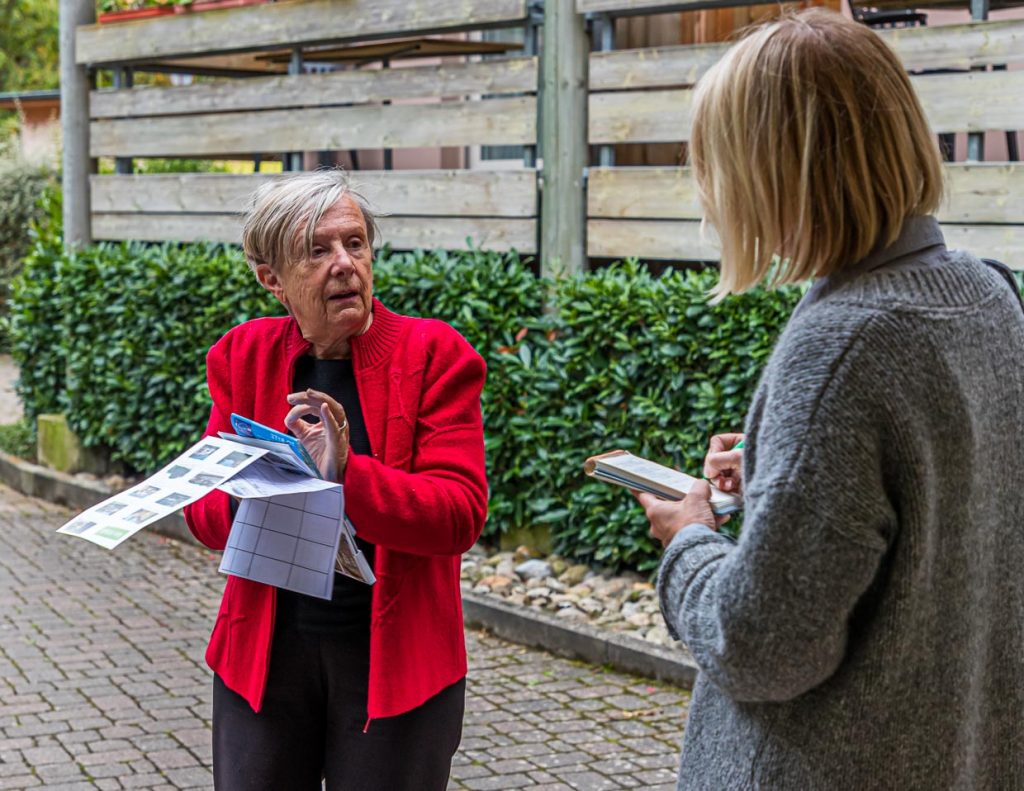
They have been working together successfully for over 30 years and have made it their task to introduce two facets of the region to guests who enjoy hiking. On the one hand, the medieval towns and their architecture and the landscape of the Vosges. The tours with Horizons d’Alsace do not focus on the Rhine plain with its wine villages, but on the side of the region facing the Vosges.
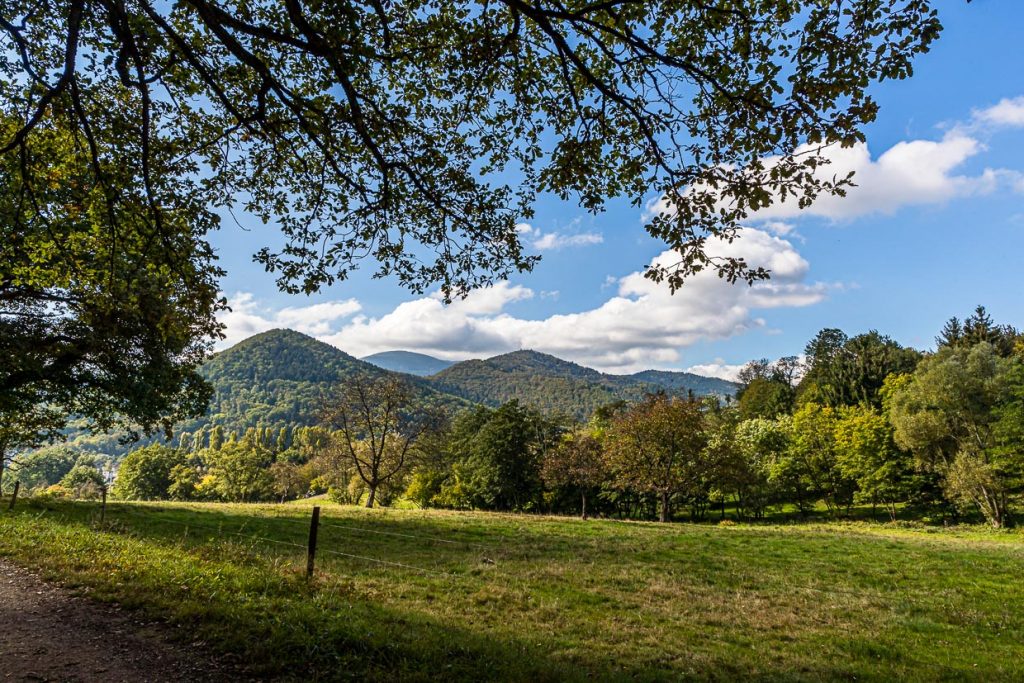
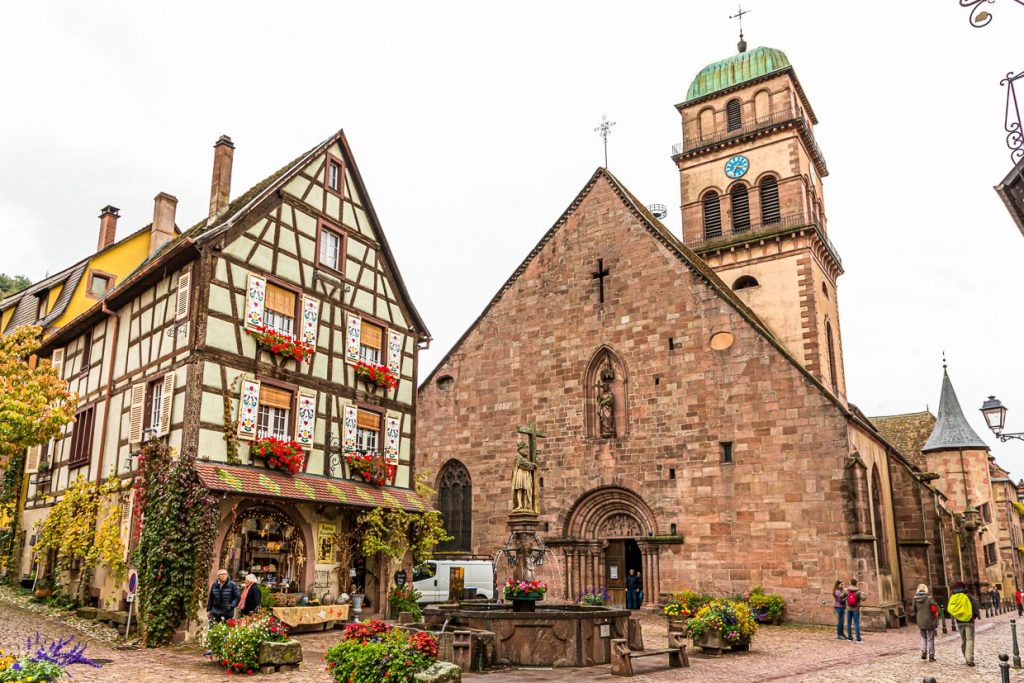
Kaysersberg is one of the most beautiful towns in Alsace. The medieval town center is dominated by the imperial castle. Kaysersberg is also the birthplace of Albert Schweitzer, Nobel Peace Prize winner in 1952. Christiane Keller still remembers a visit Schweitzer made to Kaysersberg in the 1950s. He used to play the organ in the church and chat with the people who were attracted by his playing.
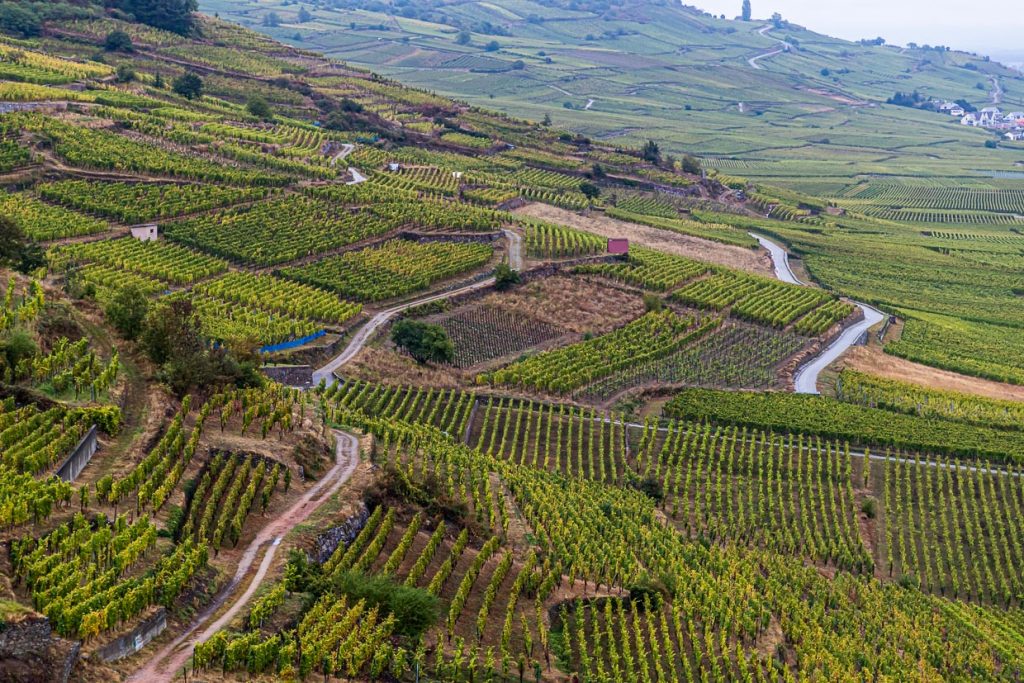
From the imperial castle, you look across the vineyards to Kientzheim, a small, very old winegrowing village completely surrounded by 15th century ramparts. Kientzheim is an ideal place for wine tasting. The Horizons d’Alsace program offers various focuses. There are programs for gourmets, for wine lovers or for those interested in history. Advice and bookings are made directly through the cooperation without any intermediary.
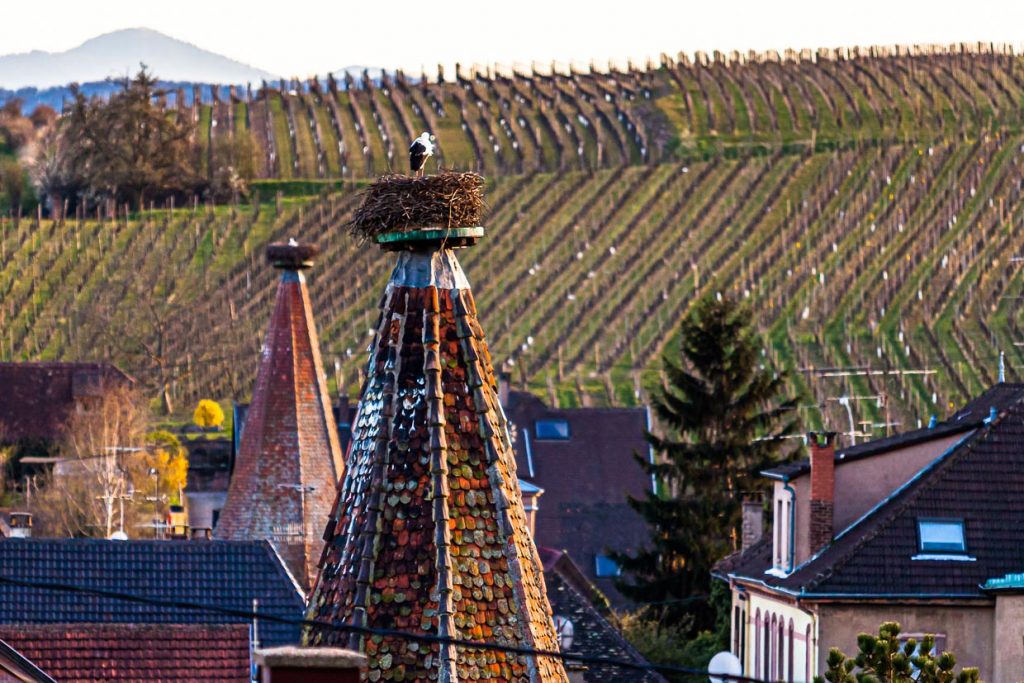
Hiking tours with Horizons d’Alsace take guests through the Ballones de Vosges Nature Park and show the region away from the picturesque towns and wineries. But hiking in the Vosges does not mean missing out on typical Alsace with stork nests, half-timbered houses and hearty cuisine. The good Alsatian cuisine is always part of the tour planning and is on the menu after a day’s hike across high pastures, through beech forests or along picturesque mountain lakes.
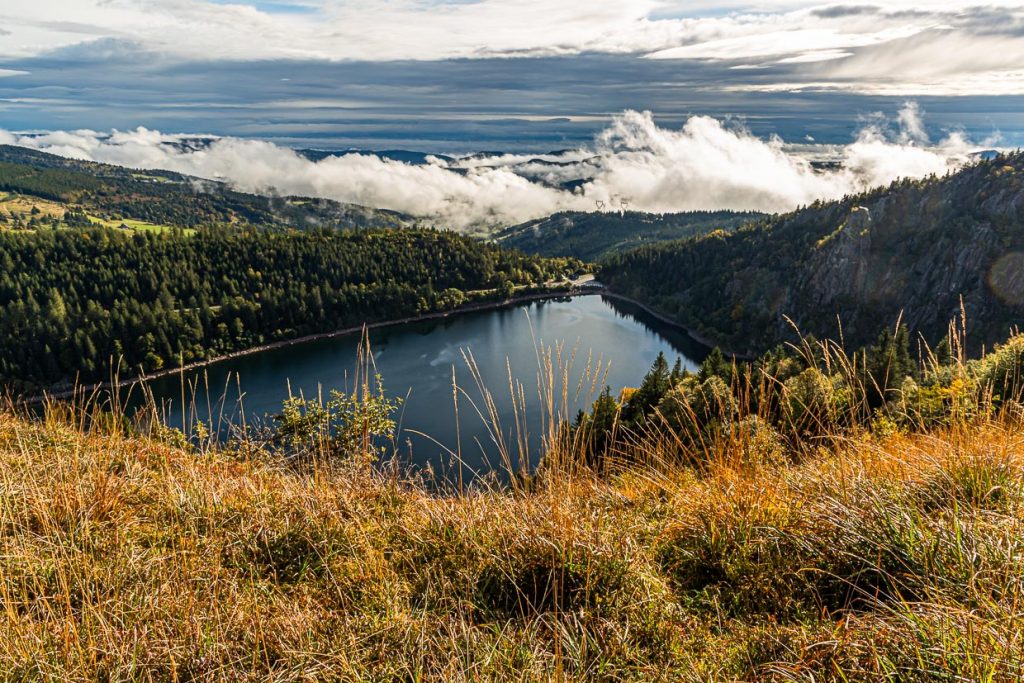
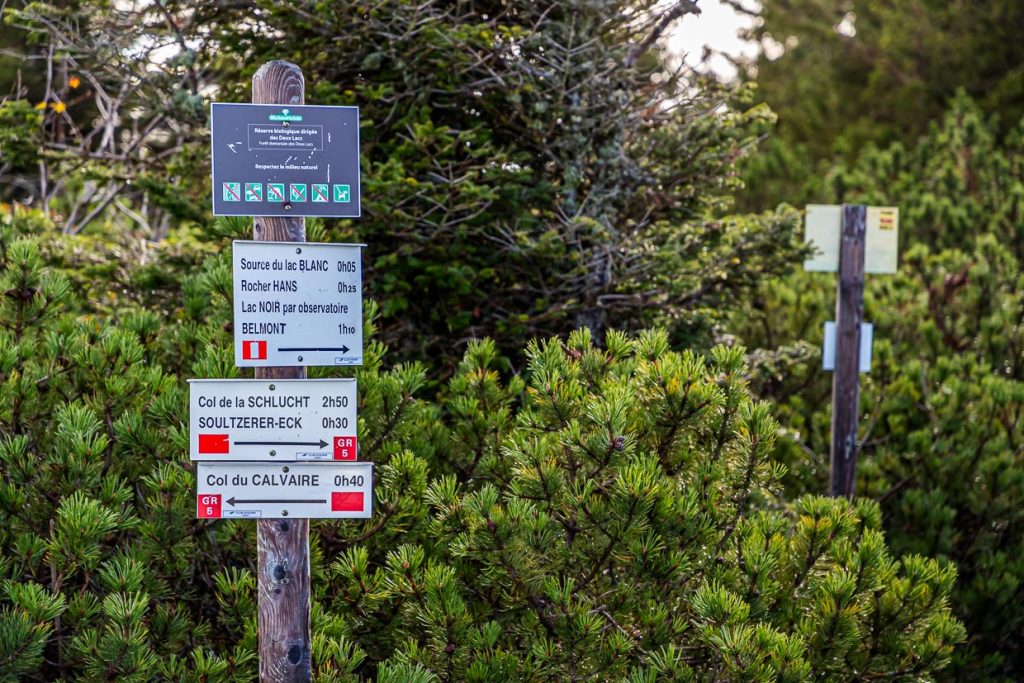
The Elasss is known for hearty cuisine and cozy wine bars. Many typical dishes with sausage, meat and sauerkraut are based on a Germanic heartiness, due to a long affiliation with Germany, which is paired in Alsace in a special way with French finesse.

In addition to the famous Weinbergschnecken in herb butter and Baeckaoffe, a defitgen stew with three different types of meat that are allowed to stew in white wine for a long time, the Alsatian tarte flambée is the region’s best-known culinary brand ambassador. Restaurants offer countless variations. Bacon and onions are the classic, but for a long time vegetarians have also had many variants to choose from.

The Horizons d’Alsace cooperation even makes sure that the food is not repeated for guests on a multi-day hike. A routing slip, which notes the menus of the previous days, travels with the luggage from hotel to hotel, so that culinary variety is also provided along the hiking route in the Ballons de Vosges Nature Park.
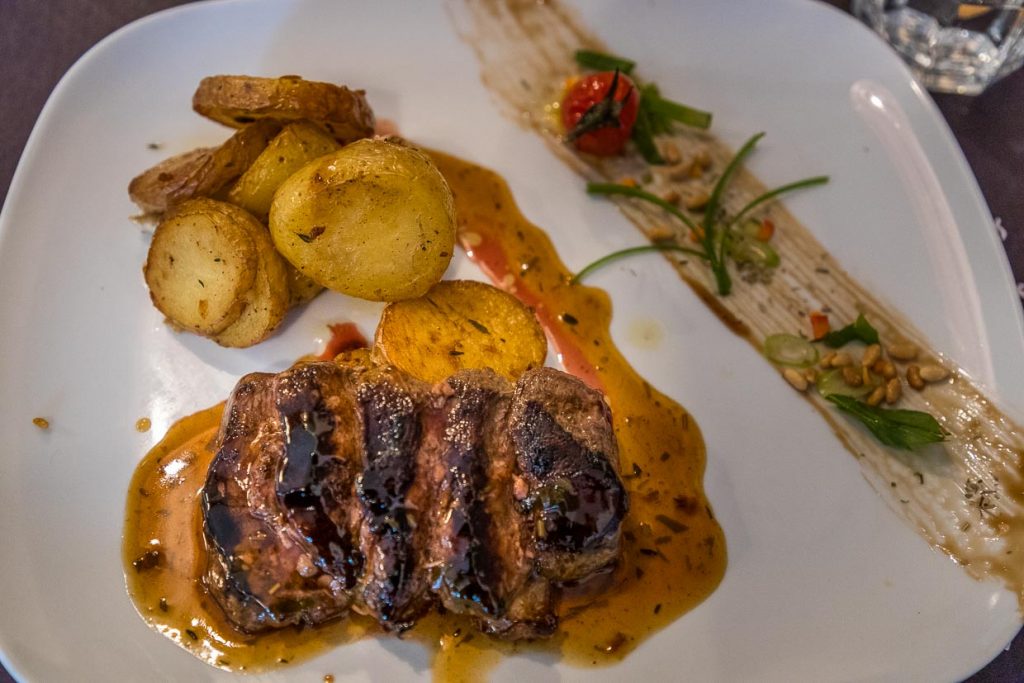
The research trip was partly supported on site by the French tourism federation

